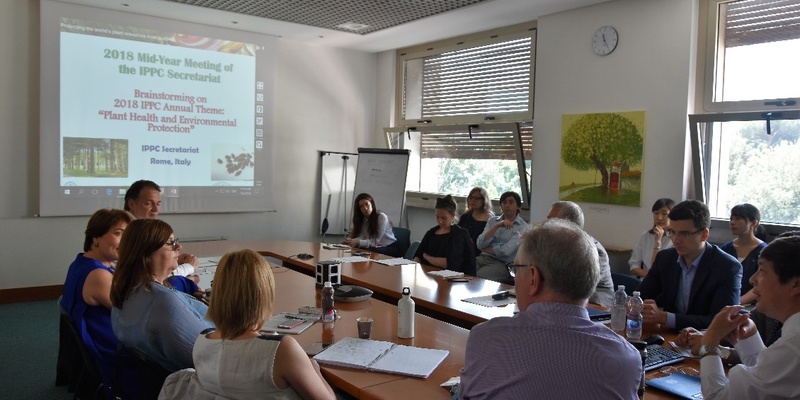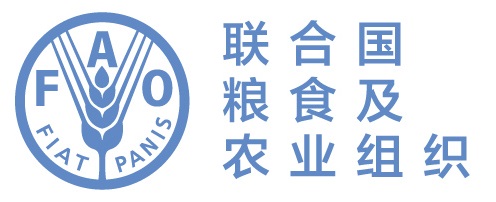The IPPC Secretariat brainstorms on the Plant Health and Environmental Protection at its 2018 Mid-Year Meeting
Posted on Thu, 12 Jul 2018, 06:43

A specific session took place during the IPPC Secretariat 2018 Mid-Year meeting on Friday, 6 July 2018 to brainstorming on activities related to environmental protection and plant health. Environmental protection is at the core of the mandate of the IPPC. Mr Brent Larson, IFU lead, provided a brief history of how the IPPC community has clarified its role regarding environmental issues. Indeed, protecting the environment, forests and biodiversity from plant pests is also one of the strategic objectives in the IPPC Strategic Framework and protecting both cultivated and wild flora from pests was incorporate into the 2005 IPPC Business plan and into the revision of ISPM 2, Framework for pest risk analysis, in 2007.
As a result of its revision in 1997, environmental protection was integrated as a priority into the IPPC. A memorandum of cooperation has been established with the Convention on Biological Diversity (CBD) in 2004, collaboration is also underway with the Ozone Secretariat aiming at limiting methyl-bromide emissions and the IPPC Secretariat is part of the Biodiversity Liaison Group gathering six biodiversity related international Conventions.
Ms Sarah Brunel from IFU and Ms Janka Kiss from SSU lead the brainstorming session and some of the following points were raised. It was noted that Bursaphelenchus xylophilus had devastating impacts to forests in Europe and is managed thanks to the implementation of ISPM 15 Regulation of wood packaging material in international trade. Invasive aquatic plants such as Eichhornia crassipes also fall under the mandate of the IPPC and have huge detrimental impacts to both biodiversity, agriculture, infrastructure and human health. The CPM Recommendation R-04 on IPPC coverage of aquatic plants explains this coverage.
The CPM adopted recommendations related to environmental matters, in particular R 02 Threats to biodiversity posed by alien species: actions within the framework of the IPPC in 2005. Furthermore, in 2009, CPM-4 adopted the Appendix 1 to the ISPM 5 Glossary of phytosanitary terms, aligning the terminology of the CBD to the plant health glossary. Standards contribute towards environmental protection as they assist countries to develop a framework to prevent, monitor and control the spread of damaging pests and diseases in order to avoid the decline of natural ecosystems and to preserve agricultural resources.
Environmental protection is also dealt transversally with e-commerce, as pests having detrimental effects to the environment can be sold on-line. This is the case for invasive alien aquatic plants sold for ornamental purposes or plants for planting which may be contaminated by pests. Sea containers, recognized as a major pathway for pest introduction, may well carry environmental pests and will be considered by the IPPC task force on sea containers. Then, when implementing phytosanitary capacity evaluations (PCE), stakeholders from the environmental sector participate in the discussions to set the country phytosanitary capacity development strategy and specific attention has been given to the revision of the legal framework. The inclusion of invasive alien plants in the plant health legal framework has been carefully considered when conducting the PCE in South-Sudan and Madagascar for instance.
The IPPC staff recognized that all standards and CPM Recommendations contribute to environmental protection and that this aspect should be further emphasized when liaising with other institutions. The International Year of Plant Health will be instrumental in raising awareness with NPPOs and stakeholders on the importance of plant health in protecting the environment.

